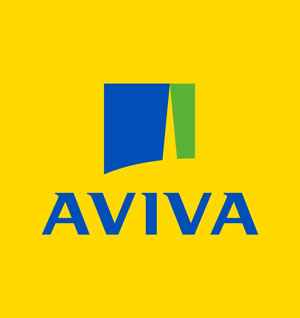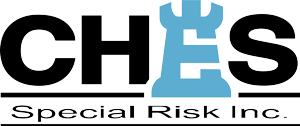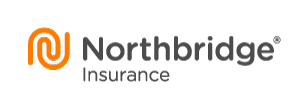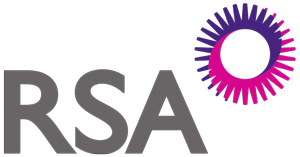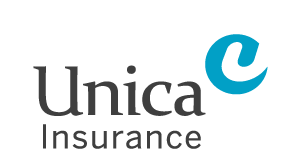
5-Star Awards 2021: Construction Insurance
Jump to winners | Jump to methodology | View PDF
Construction is more than just building structures – it’s also a key indicator of a country’s economic trajectory. So, in early 2020, the relative stability of both the Canadian construction industry and the construction insurance industry, which covers tens of billions of dollars of projects each year through a complex litany of highly specialized insurance products, was a heartening sign. Then COVID-19 hit.
“In Quebec, most construction sites were forced to stop in the early stages of confinements,” says Alain Giroux, executive vice-president at HUB International, who is based in Quebec and specializes in construction coverage across North America. “This brought many questions concerning vacancy provisions and exclusions found in many policies. We also had to spend some time looking at possible policy provisions for business interruption coverage related to government-sanctioned project closures.”
Throughout the country, contractors allocated resources to align their operations with new laws regarding site security and physical distancing. Globally, the pandemic stifled supply chains. For example, HUB had a client who needed a transformer from Italy to complete a wind farm – but the entire country was in lockdown. Other challenges centred around the pandemic’s impact on schedules, the availability of labour, and the supply and delivery of materials.
“The construction insurance industry also got impacted by the overall property insurance hardening, with COC rates increasing in a way they had not in previous years,” Giroux says. “The rates on combustible construction projects have been high for a few years, but 2020 pushed this even higher, with markets in London exiting this class. Many insurers also had to reduce their capacity.
“Casualty rates started to increase modestly in mid-2020,” he adds. “By the end of 2020, pushed by the fact that most London markets were near their maximum premium income limits in October/November, it was the casualty rates, particularly excess rates, that accelerated their assent. This has continued into 2021.”
However, the overall impact of COVID-19 on the construction industry was less severe than anticipated, and the sector bounced back nicely.
“Contractors were resilient during the process, working with construction owners to maintain schedules to the best of their ability and to address the cost implications related to the pandemic,” Gregory Petrela, president and managing partner at Petrela, Winter & Associates (PWA), a Navacord broker partner, told IBC in February.
“Construction, in an average year in Canada, represents somewhere around 7% of GDP, and that’s usually somewhere in the range of $75 billion to $80 billion in new projects starting in a given year,” Peter Toole, vice-president and insurance practice leader at PWA, told IBC. “Last year, that dipped down to about $60 billion, so coming down about 6%, which is pretty significant, but all signs seem to point to a rebound for 2021.”
And that’s great news for both the construction industry and the insurers who serve it.
What construction clients need
For more than 15 years, Giroux has been working with developers, architecture and engineering firms, general contractors, and specialized trades; he’s also served as a risk manager for a large engineering firm. He leverages his background and experience help HUB analyze risks, advise construction clients with possible risk management strategies, negotiate coverages with insurers, handle claims, provide prevention/inspection services, and address the concerns and needs of various stakeholders throughout a project’s life cycle.
“Many companies, including HUB, pride ourselves on our proximity with our clients,” he says. “We are a very entrepreneurial company where the focus is always on our clients. What distinguishes the construction practice even more is our multi-disciplinary team of construction experts that work almost exclusively in this sector. Experience and expertise in the sector have enabled us to place risks in ways others didn’t.
“What also works well at HUB is our focus on our teams and people. Early on during COVID, we maintained efficient communication channels with all our colleagues, who were adapting to the new realities of working from home. This allowed us to stay available and accountable to our colleagues and clients.”
Going forward, Giroux says, construction companies will stand out by properly managing quality, subcontractors, budgets, supply chains and schedules. However, he has a few warnings for both insureds and brokers in this space.
“With an increased dependence on BIMs [building information modelling] and other electronic/computer tools, the sector needs to be more and more aware of its exposure to cyber-related incidents that could affect the delivery of projects,” he says. “Construction contracts are more and more technical in allocating risk to contractors and sub-trades – taking this into account when structuring insurance around a project is essential to avoid gaps in coverage or unnecessary claims litigation or contractual disputes.
He also notes that “risk management policies regarding latent defects and water-related losses will undoubtedly take more and more importance in our discussions with insurers. Companies should be ready to demonstrate the controls they have in place to mitigate these risks.”
What brokers are looking for
To help IBC select the 2021 5-Star Construction Insurers, hundreds of brokers chimed in on what’s most important to them when selecting an insurer for their construction clients. Far and away, the most important aspect to those surveyed was the insurer’s overall service to brokers – from speedy turnaround times on quotes to knowledgeable staff who can help answer any questions a broker might have.
“They are so quick at quotes, explain coverages and help gaps get filled,” one broker raved about their insurer, adding “I love placing business for my builder’s risk with them.” Several brokers also noted the ease of doing business with their favourite insurers. “Easy, fast and competitive” is how one broker described their first-choice insurer.
In a complex segment like construction, it’s hardly surprising that underwriting expertise was also incredibly important to brokers – 93% rated it as either an ‘important’ or ‘very important’ quality in a construction insurer. Several survey respondents said their favourite insurers and MGAs earned their business based on the strength of their underwriters. One broker lauded their MGA’s underwriter for having “a very good relationship with the brokers [and an in-depth understanding of construction risk.” While service and expertise are most critical, pricing is also important in the construction sector – on average, 90% of brokers said they’re looking for a good value when selecting a construction insurance policy. Many brokers noted that their top insurers were the ones with reasonable and competitive rates.
Slightly less important to brokers – but still critical – were the speed at which claims are processed and paid, the access provided to risk mitigation partners and the insurer’s ability to customize policies to create bespoke solutions. “They have the broadest wordings, are most flexible in their product and they do individual attention – they are able to customize,” one broker said of their insurer.
Finally, the least important aspect to brokers when choosing a construction policy is the insurer’s online platform – only 36% of brokers said the ability to do business online was either ‘important’ or ‘very important,’ while another 36% said it wasn’t important at all.
5-Star Construction Insurers & MGAs
- ABEX
- Agile Underwriting
- APRIL Canada
- Beazley
- Berkley Canada
- Burns & Wilcox
- Cansure
- CFC Underwriting
- Chubb
- CNA
- Coast Underwriting
- Economical Insurance
- i3 Underwriting
- Intact Insurance
- Liberty Mutual
- Markel Canada
- Premier Group
- SGI Canada
- South Western Group
- Sovereign Insurance
- Special Risk Insurance Managers
- SUM Insurance
- Totten Insurance Group
- Travelers Canada
- Trisura Guarantee Insurance Company
- TruStar
- Victor Canada
- Wawanesa Insurance
Methodology
‘Market-leading’ is a phrase many insurance companies like to use when describing their products. Now 33 companies can claim that title on the back of hard market research from the people who matter most: insurance brokers.
To select the best construction insurers for 2021, IBC quizzed brokers on what features they thought were most important in a construction insurance policy and then asked how the insurers they dealt with rated on those attributes.
Insurers were measured on the strength of their relationships with brokers, ability to handle claims, underwriting expertise and, most importantly, the strength of the individual products they provide.

Best in Construction Insurance
 Builder's Risk/Course of Construction
Builder's Risk/Course of Construction Commercial and Contractor General Liability
Commercial and Contractor General Liability Inland Marine
Inland Marine Environmental Liability
Environmental Liability Wrap-up Liability
Wrap-up Liability Auto Liability
Auto Liability D&O
D&O Professional Liability
Professional Liability Civil Contractors
Civil Contractors General Contractors
General Contractors Subcontractors
Subcontractors Specialty Trade Contractors
Specialty Trade Contractors Professional Construction Service Firms
Professional Construction Service Firms Developers and Owners
Developers and Owners Heavy Construction
Heavy Construction Demolition
Demolition MGAs
MGAs
Keep up with the latest news and events
Join our mailing list, it’s free!

